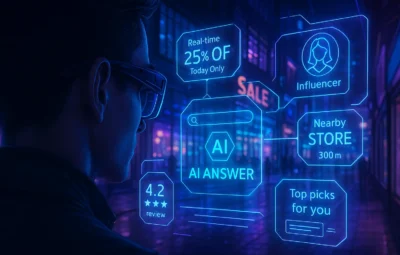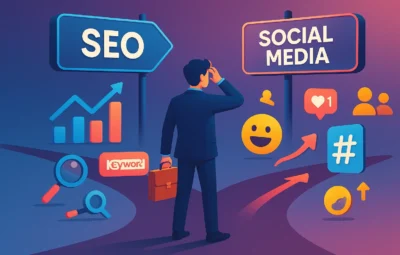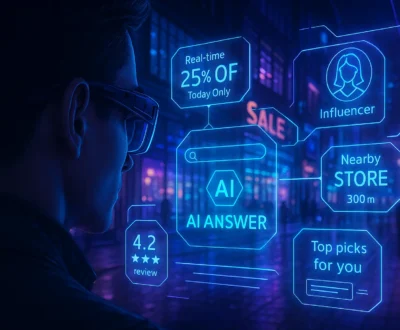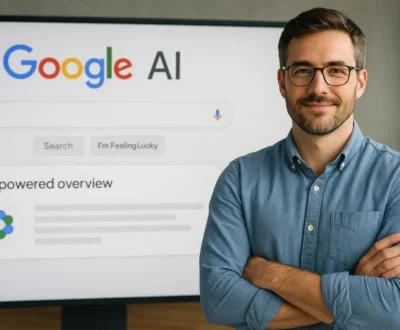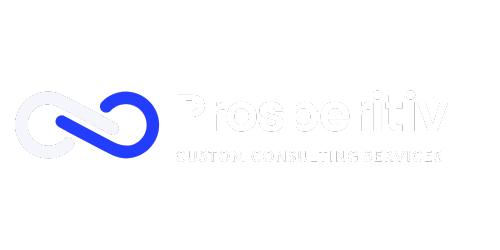What Is Synthetic Intelligence—And Why It’s More Than Just a Buzzword
You’ve probably seen it floating around social media lately:
💀 “AI is dead. It was never alive. Now something else is waking up... SYNTHETIC INTELLIGENCE.”
It sounds dramatic because it’s supposed to. But beneath the hype, there’s a very real conversation happening about what comes after artificial intelligence (AI). And no, it’s not robots with emotions (yet).
In this article, we’ll break down what synthetic intelligence actually means, where the idea comes from, and why small businesses and marketing teams should be paying attention—even if you're not in the tech world.
Synthetic Intelligence vs Artificial Intelligence: What’s the Difference?
Most people use “AI” to describe tools like ChatGPT, Midjourney, or the countless marketing automations now available. But what we call AI today is really machine learning trained to predict patterns based on past data. It’s impressive, yes—but it’s also based on mimicry, not original thought.
Synthetic intelligence, on the other hand, is being framed as a leap forward:
- It's not just trained, it's emergent
- Not just reactive, but potentially autonomous
Some researchers even argue it could encompass biological computing (such as human neurons on chips) or hybrid models that mimic the way consciousness arises.
Where Did the Idea Come From?
The phrase synthetic intelligence isn’t new as it was introduced in academic circles as far back as the 1980s. Philosopher John Haugeland proposed it to challenge the assumption that machines can only ever simulate intelligence. In his view, if intelligence arises from patterns and systems, there’s no reason a synthetic system couldn’t become genuinely intelligent.
Fast forward to today, and we’re seeing this idea gain traction again, especially with:
- Biological neural chips, like those developed by Cortical Labs or even Elon Musk's Neuralink
- Emergent AI behaviours, such as AI agents showing memory, reasoning or self-correction
- Ethical debates, including whether AIs like “Maya” (an OpenAI model) should have basic rights
The result? Synthetic intelligence is now being used to describe a category of tech that feels more alive than anything we’ve seen before.
What Does Synthetic Intelligence Mean for Small Businesses?

Before you panic: no, synthetic intelligence won’t replace your marketing team overnight. But it does mark an important shift in how we think about tools, systems, and automation.
Here’s why it matters:
1. Intelligent Systems Will Become More Context-Aware
The future of business tools isn’t just rule-based automation. Synthetic intelligence could lead to platforms that adapt in real time, learn from behaviour, and adjust based on goals without being reprogrammed.
Imagine a CRM that knows when to pause outreach because your lead just engaged with your competitor. That’s not far off.
2. The Human + Machine Relationship Will Evolve
Instead of using prompts or workflows, future systems might collaborate with you like a partner, understanding intent and context rather than waiting for instructions.
This doesn’t mean you’ll need to “train” a machine but your tools will train with you.
3. Ethics and Transparency Will Matter More
As tools become more autonomous, business owners will need to ask harder questions:
- Where is this data coming from?
- How is it making decisions?
- What values is it aligned with?
Even SMEs will face these questions when choosing suppliers, tools, or marketing platforms.
Recommended: AI Agents in SMEs: Is Your Business Missing Out?
What Prosperitiv Thinks About Synthetic Intelligence
Let’s be clear: we’re not building synthetic intelligence, nor do we claim to offer AGI or conscious systems. Our focus at Prosperitiv is helping small to medium-sized businesses grow through automated marketing, CRM solutions, SaaS and practical systems that work right now.
But, we do keep a close eye on where things are going. We believe that understanding trends like synthetic intelligence helps our clients future-proof their businesses, avoid hype traps, and make smarter tech decisions.
You don’t need to jump on every shiny new term. But you do need a partner who knows when the landscape is shifting. Just like the question: What is best for your business: Social Media Marketing or SEO? Hint: It's both!
Final Thought: Beyond the Buzz
The phrase “synthetic intelligence” might sound like science fiction but it’s already influencing how companies design the next generation of tools. Whether it’s autonomous customer support agents, smarter marketing platforms, or ethical debates around digital consciousness, this shift is coming.
At Prosperitiv, we help businesses cut through the noise and build systems that don’t just keep up but lead.
Ready to grow with clarity in a world of chaos? Book a strategy call with us and let’s talk about the tools you actually need.
FAQS: Synthetic Intelligence vs Artificial Intelligence
Click the + to read any answer.
Right now? No. Most businesses still benefit more from AI-powered tools like CRMs, chatbots, and automation platforms.
But keeping an eye on synthetic intelligence is smart—it signals the future of more adaptive, collaborative tech. Understanding SI now helps your business stay ahead of the curve without falling for hype.
Not quite. While some companies may use the term as a buzzword, synthetic intelligence represents a philosophical and technological shift:
- AI = trained to mimic intelligence
- SI = manifests intelligence through novel or organic processes
It’s the difference between prediction and perception, or between a parrot and a mind of its own.
- Artificial Intelligence (AI) typically refers to systems that simulate human-like intelligence using data-driven algorithms—like chatbots, image generators, or predictive analytics tools.
- Synthetic Intelligence (SI) refers to the idea of intelligence that’s genuinely emergent, potentially autonomous, and not just imitating human thinking but operating independently—possibly through new computing models, including biological or hybrid systems.
Recent Posts
Popular Posts
About us and this blog
We are a digital marketing company with a focus on helping our customers achieve great results across several key areas.
Request a free quote
We offer professional SEO services that help websites increase their organic search score drastically in order to compete for the highest rankings even when it comes to highly competitive keywords.





